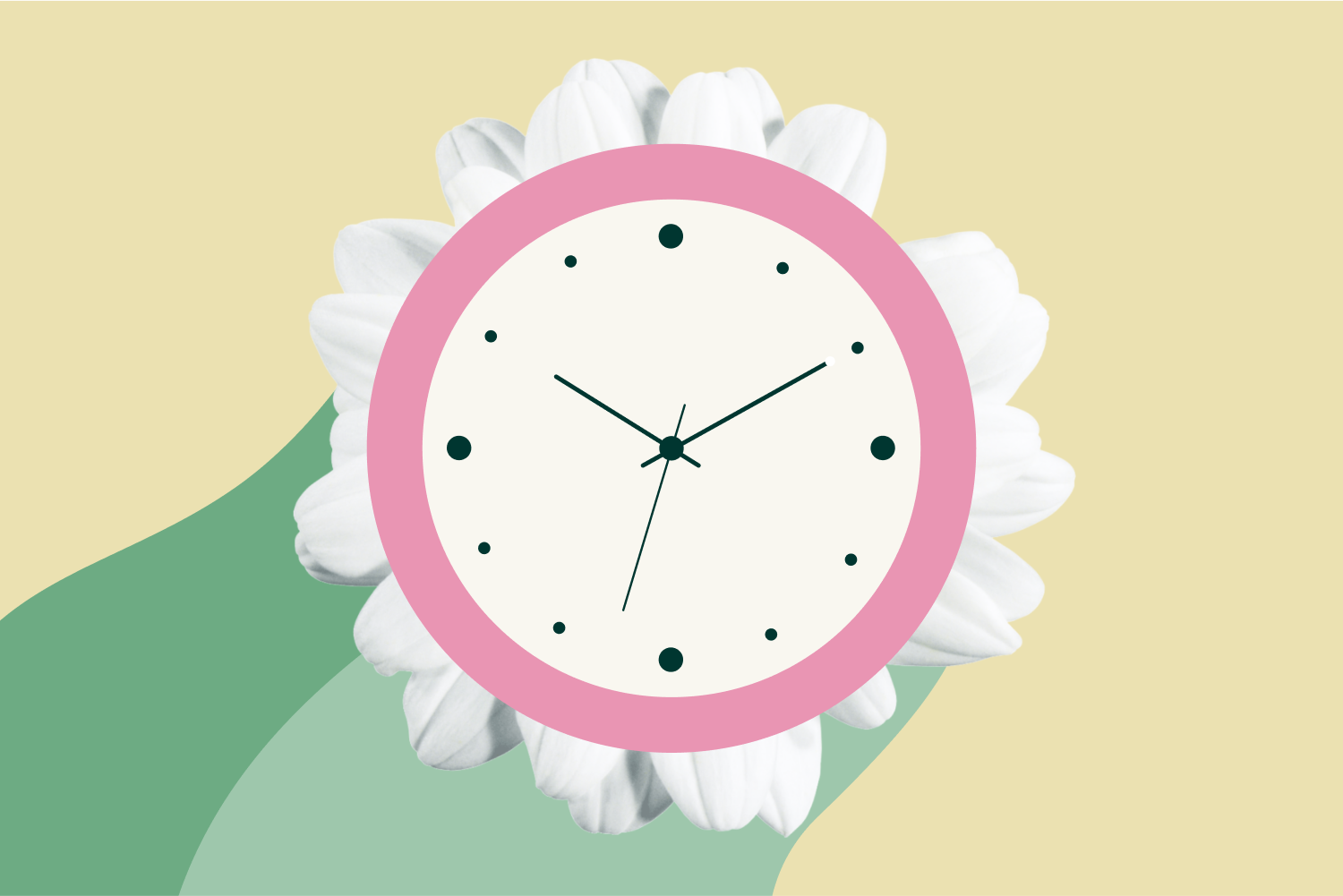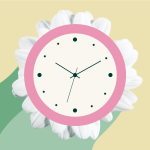Here’s How Your Cycle Affects Your Sex Drive
When we think about our cycles, we usually think about our period and maybe ovulation. Ovulation, as you may know, relates to our chances of becoming pregnant.

Read to find out why you’re hornier during ovulation.
Besides a few other symptoms, maybe you’ve noticed that you feel more frisky than other times during your cycle.
If you’ve ever found yourself wondering does ovulation make you horny? For some women, the answer is yes! In this article, we’ll discuss why and how.
But first, let’s do a quick overview of the 4 phases you’ll experience in a typical cycle.
How your cycle works
While the average cycle is 28-30 days long, every woman is different. Her menstrual cycle may or may not be 28-30 days along, some women have may shorter cycles. Tracking your cycles with a period tracking app will help you figure out what’s normal for your body. Before we break down just how your cycle influences your sex drive, let’s do a quick refresher on the phases of a typical cycle and each role they play.
The four main phases of your cycle are:
- Menstruation (when you’re bleeding)
- The Follicular phase (after bleeding is done)
- Ovulation(the timeframe when you’re most fertile)
- Luteal Phase (after ovulation and before your next menstrual)
Estrogen and Progesterone are key players in your cycle and affect your sex drive.
Throughout your cycle, the hormones estrogen and progesterone fluctuate significantly; and this will determine how you feel.
During your menstrual phase, estrogen and progesterone levels are both at lower levels. Most women during this phase may feel less likely to want to get their groove on. In general, most women report feeling bloated, tired, and the last thing they’re thinking about is sex.
Once menstruation is over, ovulation is gearing up to take place; and this is when the fun begins.
Two weeks before the start of your next menstrual period somewhere between days 11-21 depending on the length of your cycle your body is gearing up with changes necessary to make a baby. With Mira Fertility Tracker you can know exactly when you ovulate and your full fertile window.
During this time, estrogen levels are increasing and you’ll notice this in your mood and other physical changes. During your fertile week, you’ll notice signs such as increased vaginal discharge will take place. Your vaginal discharge will become thinner, and slippery with a consistency similar to egg white the closer you are to ovulating.
While these are a few physical signs of ovulation being around the corner, tracking your hormones can lead to a more accurate prediction of when ovulation is near. Tracking your hormones along with watching the signs your body produces will help you figure out when you’re ovulating even better.
In addition to feeling more horny and increased vaginal lubrication, other signs women report feeling during ovulation are energetic, feeling more creative, great-looking skin, and happier and friendlier.
All of these signs combined can make for the perfect time to begin baby-making.
How does this affect me when trying to conceive?
Using this information along with tracking your hormones during your cycle can significantly up your chances of conceiving and can also help you and your partner to plan the best times to have sex.
What if I’m not trying to conceive?
Even if you’re not trying to conceive this information still be useful. You can use this information to be more mindful of your sexual activity during your most fertile times.
You can use this information to decide whether to carefully participate in sexual activity or to avoid it altogether.
This information may not apply to you if you’re using hormonal birth control. But if you’re not using hormonal birth control, using other methods of birth control during this time frame can also be helpful in preventing pregnancy.
Are all women really horny during ovulation?
Not all women are horny during ovulation, as we touched on above whether or not you’re using hormonal birth control can play into whether or not you feel more or less of the hormonal fluctuations that take place when not using birth control.
A German study published in the Journal of Sexual Medicine noted that the use of hormonal birth control can halt sexual desire in some women completely. Other factors such as pregnancy, stress, and relationship issues could also play a role in a woman’s sexual desire during her fertile period.
If you’re not using hormonal birth control and still aren’t feeling horny throughout your fertile period and you’re concerned, it may be worth discussing with a medical professional.
Different products on the market can help with boosting your libido, but talking with your doctor to figure out the best step to take is recommended.

A little extra support from an expert can go a long way
Book an online consultation with one of our Hormone Health Coaches.
Schedule NowConclusion
If you’ve always noticed you feel more flirtatious and hornier during a certain time frame and weren’t sure if there was scientific proof to back it up then here’s your answer: yes, you are more likely to feel horny during ovulation.
As humans continue to advance, our bodies are still here and ready to serve their biological purpose: Reproduce. When you think of it that way it makes complete sense that a woman’s sex drive is most increased during her fertile period.
Gaining a better awareness of your overall cycle and not just your period can help you in many ways, whether you’re trying to conceive or not. Knowing the different phases of your cycle and the hormones in charge of the charge helps you build a better relationship with your body.
Mira’s Editorial Process
All content produced by Mira meets stringent editorial standards, ensuring excellence and accuracy in language and medical precision. Every piece undergoes thorough fact-checking and review by qualified professionals. Check out our full editorial process to learn more.










